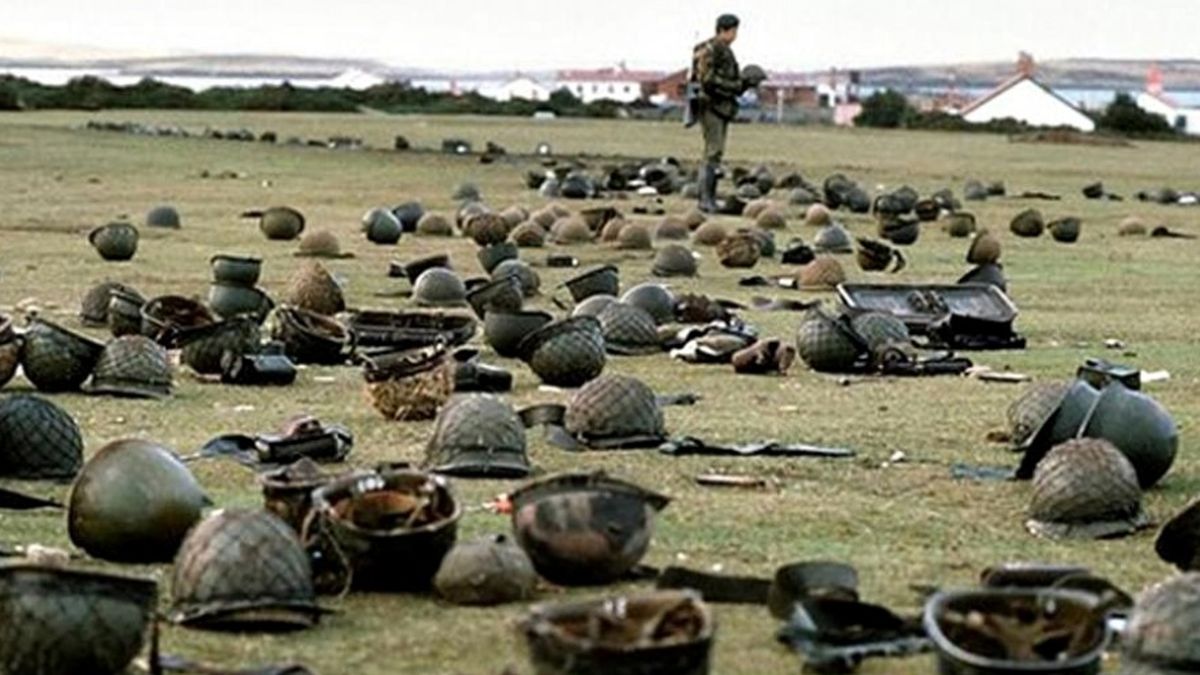Also from the most traditional folklore, not a few songs of exalted patriotic and nationalist inspiration were released (such as “Tenths for a brave”, by Argentino Luna, and “The Malvinas will return”, by Roberto Rimoldi Fraga), but the chamamé “The Ramones”, by Mario Bofill and Julián Zinirecounting the massive transfer of conscripts from Corrientes and the coast to the harsh Malvinas cold, remained as a testimony of the time.
With a similar imprint, a young Soledad Pastorutti popularized years later “The lost letter“, from a Chaco soldier to his mother in a piece composed by Julian Raul Ratti.
Tango did not escape the event either through two of its greatest supporters: Osvaldo Pugliese premiering “They are and will be Argentine” what sebastian piana created in 1973 and Astor Piazzolla dedicating a piece to the Los Lagartos commando group, which, according to official propaganda, had resisted in the Georgia Islands but, later it was learned, surrendered without firing or offering any resistance and had the repressor as its leader Alfredo Astiz.
“Piazzolla gave him ‘Los Lagartos’ at his premiere in the concerts with Goyeneche at the Regina theater in May 1982, with a confused enthusiasm for the recovery of the Malvinas Islands. When he was immediately warned by a friend of radicalism linked to Hipólito Solari Yrigoyen, the title does not last a day, quickly becomes ‘Counterattack’, to later end up as ‘Tanguedia 3’ and included, to extreme the paradox, in Pino Solanas’s film ‘El exilio de Gardel'”, he pointed out. a year ago to the agency Télam the researcher Carlos Curi.
But it was between rock and popular song where the war and its splinters penetrated deeper and left several impact pieces that watered down the issue and also flew further away from the situation.
Leon Gieco with the pacifist anthem “I only ask God” -which largely transcended borders in the voice of mercedes sosa– and Charlie Garcia with the ironic “Don’t bomb Buenos Aires”, They gave away two works born in the Malvinas context, although capable of sustaining themselves over time as an allegation and for their artistic values.
If it is a mocking tone about the war promoted by the dictatorial regime, it stands out clearly “The banquet” to which he alluded Virus on his second album “Recrudece” after refusing to participate in “Mucho rock por algo de paz”, one of the many festivals held at that time.
Within that songbook amassed between the ups and downs of the dictatorship, war and military defeat, there is a vast sampler capable of housing different aesthetic and ideological positions.
In tune with the moment and as a perfect testimony of these conflicting feelings, he registered “Queen mother”where Raul Porchetto he puts himself in the shoes of an English soldier wondering about the meaning of the confrontation while still alluding to a territory “so far from home”.
On their 1988 debut plate, the group White rat took stock of “Southern People”while The Rapists delivered a furious and urgent critique in “Communique No. 166”one of the milestones embodied in “So what happens now, huh?”their second album dated 1985.
The position of the ex-combatants -contemporaries of most of the artists who dedicated songs to them- appears with different aspects in “April 2”from attack 77and also in “The visitor”from Strong soul.
From Rosario and by the hand of members of the so-called Trova that enjoyed the accolade to national music that granted the prohibition of disseminating songs in English during the conflict, they also produced documents of enormous value.
In 1983 for his third plate “Baglietto”the interpreter included “Love in other words”a creation with text by Raphael Bielsa and music from Alberto Callaciwhich rescued the assumption of that call to struggle.
Taking his time to process and capture it, the artist Fito Paez approached the matter from the perspective of a victim of the conflict in “The Missing House” (recorded in “Abre”, 1999) and also in “The song of the Soldier and Rosita Pazos” (which was part of “I love you”, 2013 album).
While Adrian Abonizio published in 2000, as part of “Everything is Smoke”a statement as brave as it is painful and original by putting in parallel the stories of a soldier and his beloved prostitute and how each of them waged their battles against the oppressor on duty.
By Sergio Arboleya
Source: Ambito
David William is a talented author who has made a name for himself in the world of writing. He is a professional author who writes on a wide range of topics, from general interest to opinion news. David is currently working as a writer at 24 hours worlds where he brings his unique perspective and in-depth research to his articles, making them both informative and engaging.




